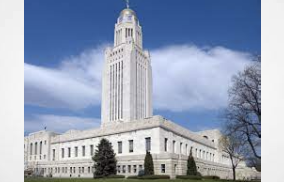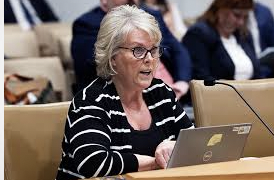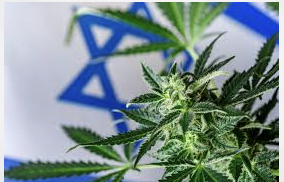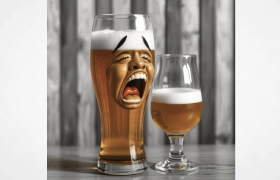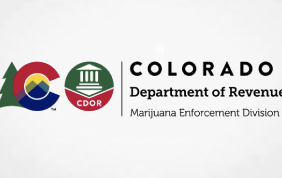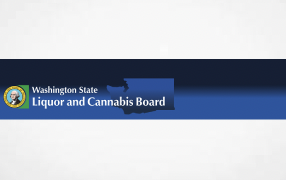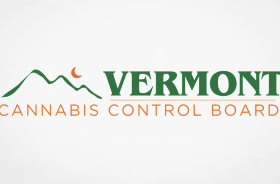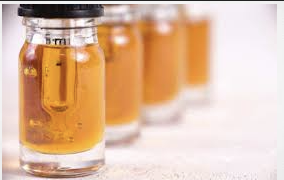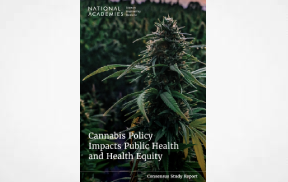Kratom & Delta 8 in the firing line
LB 972, introduced by Central City Sen. Loren Lippincott, would add Mitragynine, commonly known as kratom, and its synthetic forms to Nebraska’s controlled substances list.
Lippincott said kratom is an herbal substance native to Southeast Asia that can resemble opioids and has stimulant-like effects. It typically is ingested orally in the form of a tablet, capsule or extract or drank as a tea, he said.
Five years ago, most people didn’t know what kratom was, Lippincott said, but now it’s difficult to drive across town without seeing a store that sells it. While it may have benefits, kratom can be addictive and some people may require medical intervention to stop using it, he said.
“Kratom actually works to some extent, but try getting off kratom,“ Lippincott said. “You can’t do it or it’s very difficult to do.”
The current version of the bill would immediately ban kratom upon passage. Lippincott provided the committee with an amendment at the hearing, however, that would delay the implementation until Jan. 1, 2025, which he said would give Nebraskans ample time to comply with the new law.
Maggie Ballard, representing Heartland Family Service, testified in support of the measure. Kratom is advertised to help with pain, fatigue, depression, anxiety and menstrual cramps, she said, but the federal government has not approved kratom for any medical purposes.
There also are numerous side effects with kratom use, such as nausea, dry mouth, weight loss and psychiatric, respiratory and gastrointestinal problems, Ballard said.
“Kratom users are regular people — soccer moms, athletes, construction workers and older folks looking for natural remedies rather than pharmaceutical prescription drugs [that] have failed them,” she said.
Also testifying in opposition to LB 972 was Mac Haddow, representing the American Kratom Association. Banning kratom could exacerbate the opioid crisis, Haddow said, by forcing the millions of people who use kratom back to medications with much more dangerous side effects.
Instead of banning kratom, Nebraska should join 11 other states and pass the Kratom Consumer Protection Act, he said, which would enact specific regulations for selling kratom, including age limits to purchase it.
Spike Eickholt, representing the Nebraska Criminal Defense Attorneys Association, testified against the measure. He argued that classifying kratom as a controlled substance would put Nebraskans who currently use it at risk of being charged with a felony.
“Even the introducer of the bill acknowledged that he wants to delay the implementation of the bill back to January because he recognizes that people are able to buy this stuff,” Eickholt said. “People are using it and you’re going to make it a felony for them to have it.”
The committee took no immediate action on LB 972.
Delta-8, synthetic TCH
Delta-8 and similar hemp-derived products would be prohibited in Nebraska under a proposal considered by the Judiciary Committee Feb.1.
LB 999, introduced by Sen. Teresa Ibach of Sumner, would restrict the sale, possession and consumption of hemp-derived cannabinoid products that contain isomers, acids and salts, such as delta-8 or delta-10.
The federal 2018 Farm Bill legalized hemp production with 0.3% or less Delta-9 THC, Ibach said, but other cannabinoids like delta-8 and delta-10 were not limited, thus creating a loophole for businesses to sell them. Currently, these products are not subject to state-regulated testing or purity requirements, she said, which prevents purchasers from knowing exactly what they’re consuming.
“While a product could be advertised as delta-8 or delta-10, these products could — and most likely do — contain chemicals, compounds and other impurities that are not listed on the label,” Ibach said.
LB 999 also would transfer regulatory oversight of hemp cultivation in Nebraska from the state to the U.S. Department of Agriculture and terminate the Hemp Promotion Fund, among other provisions.
Nebraska Attorney General Mike Hilgers testified in support of the measure. Nebraska retailers who sell delta-8 and similar products are operating in a “perceived loophole,” he said, that does not exist within state law. Investigations undertaken by his office found that many retailers offered products that are “clearly illegal,” he said.
“They’re making a little bit of a bet that authorities, like my office or others, won’t be able to take the time, the energy or the money to be able to enforce the law,” Hilgers said.
Also testifying in support of the measure was Sarpy County Sheriff Jeff Davis. In 2023, the narcotics unit purchased products from various Sarpy County retailers that were sent in for testing, he said.
“A few months later, we were notified that several products had tested positive for delta-9 with a THC content 30 or 40 times greater than what was allowed by law, which is 0.3%” Davis said.
After these findings, products from stores in Omaha, Lincoln, Grand Island and Ogallala also were also tested and found to be illegal, he said.
Andrea Holmes, an organic chemist and president of the Nebraska Healthy Alternatives Association, testified against the proposal.
Thousands of people across the state use hemp products to improve their health and quality of life, she said, and most retailers are complying with state law by offering products that are clean, professional and sourced from trusted manufacturers.
“A ban on hemp products would not only put these reputable businesses out of commission, but also prevent adults in Nebraska [from accessing] safe and tested products that they freely choose to use in their daily lives,” Holmes said.
Also opposing the bill was Sean Norris, who spoke on behalf of MC Nutraceuticals, a cannabinoid distributor.
An estimated 40 million U.S. adults tried delta-8 products in the last year, he said, and many people who use hemp-derived products report that the therapeutic benefits are greater than those found in traditional medicines, including opioids.
Nelam Millatmal testified against the proposal on behalf of The Cannabis Factory, a Nebraska-based retailer with 16 stores throughout the state. The Cannabis Factory sells products only from reputable distributors licensed by the USDA, she said, which are tested in DEA-certified labs and arrive in stores with certificates of analysis.
More than 100,000 customers are enrolled in the company’s loyalty program, Millatmal said.
“They include, but are not limited to, retired military personnel, teachers, chemo patients, law enforcement officers — all of whom find benefits for health concerns with our products,” she said.
The committee took no immediate action on LB 999.
Source https://northplattebulletin.com/legislature-kratom-criminalization-proposed/

